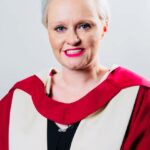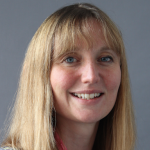Doctorate in Education (EdD)
The Doctorate in Education (EdD) is a part-time doctoral programme designed to offer high quality research training and career development for professionals employed in a broad range of areas related to education. By providing a detailed understanding of research techniques and enabling students to relate theoretical concepts to their professional field, the programme aims to enable students to critically reflect on their professional contexts as well as explore and understand the research and values that inform practice.
If you would like to learn more about pursuing your EdD research at the University of Reading’s Institute of Education (IoE), please click here.
(Please note that if you are applying to do an EdD, two supervisors will be allocated to you by the programme after you have successfully completed the first two years of the programme. You are not required to identify potential supervisors at the time of your admissions application.)
EdD Alumni
Read on to see what some of our EdD alumni think about their time at the IoE, and what they have been up to since their graduation.
Dr. Catherine Foley

Year of graduation: 2016
Thesis title: Girls’ perceptions of mathematics: An interpretive study of girls’ mathematical identities
Research focus: My EdD thesis explored girls’ perceptions of mathematics and how they make sense of their mathematical identity, using a mosaic of qualitative methods to gain insight into their positioning as mathematicians.
Reasons for choosing to do the EdD degree at the University of Reading: I chose the EdD route as I wanted to develop my own professional practice as well as exploring an area I was passionate about in depth. The structure of the EdD at the Institute of Education allowed me to develop my confidence in reading, writing and researching at doctoral level, and I particularly enjoyed the regular opportunities to meet with other students across a wide range of backgrounds. As a full-time working parent, a highlight for me was the insightful and supportive supervision which challenged me whilst understanding that doctoral research was only part of my daily life.
Career since graduation: I currently work at the University of Reading’s Institute of Education as Programme Direct of our Primary School Direct initial teacher training programme, and aspire to ensure that every beginning teacher in our care enters the profession as a well-informed, empathetic and enthusiastic teacher of mathematics.
Dr. Clare McCullagh

Year of graduation: 2022
Thesis title: A kind of currency or just a quiet pride? Exploring career journeys, academic prestige and impact of senior teaching fellowships for women in HE
Research focus: The research explored whether senior categories of teaching fellowships such as the National Teaching Fellowship (NTF), HEA Principal Fellowship (PFHEA) and HEA Senior Fellowship (SFHEA) provide opportunities to support career progression for women with teaching focused roles in a prestige economy which has traditionally favoured research achievements. In carrying out this study, which drew on visual and narrative methods, research participant’s broader career journeys were also explored.
Reasons for choosing to do the EdD degree at the University of Reading: I wanted to study part-time, whilst working, and an EdD (rather than a PhD) programme provides a structure that is specifically designed to support people to do this. EdDs encourage you to research an aspect of your own professional practice, and for me, that was a major appeal – being able to study and work at the same time, with each informing the other. Being part of an EdD cohort also appealed to me, because PhD study can be lonely. The EdD programme at Reading is carefully scaffolded so that you gradually move towards independent research and thesis writing, supported by two supervisors.
Career since graduation: I am an academic developer at my institution and my research provided many insights into issues around gender and recognition, progression and prestige. I graduate next week, so in some ways it is early days for me, but I started learning from day one of the EdD programme and it remained an incredibly enriching experience throughout. Since my viva, I have been invited to present my research at two institutions and a next step is to write up my research and findings for a journal article.
Dr. Fiona Curtis

Year of graduation: 2015
Thesis title: Keeping it real – An action research investigation into the use of manipulatives in the secondary maths classroom
Research focus: As a secondary school mathematics teacher, I was very concerned about the struggle my students had with algebra. For my EdD, I designed an action research project (meaning I researched my own teaching) and found out that although manipulatives seemed to have a role in engaging students and helping them understand algebra, their test results were not improved. However, the research gave me greater understanding of students’ attitudes to challenge.
Reasons for choosing to do the EdD degree at the University of Reading: I chose an EdD rather than PhD as I felt there was a recognition of the relevance of my professional knowledge already accumulated. I really appreciated the diverse modules of an EdD rather than PhD, so that in Part A of the EdD programme, I studied so much more than the focus I finally chose for my thesis in Part B. I was exposed to new and thought-provoking ideas, such that it was not unusual for me to start an essay with one point of view and have the completely opposed view by the end!
Career since graduation: I found the mental challenge of doing an EdD so stimulating that I hung around the place (University of Reading’s Institute of Education), and am now a lecturer in Education here.
Dr. Gemma Pawson

Year of graduation: 2022
Thesis title: Supervision in the Early Years: A case study of ten nurseries in the private sector
Research focus: My research was conducted within the Early Childhood Education and Care (ECEC) sector. It examined the supervision experiences of ten Nursery Managers. Supervision is a relatively new practice to the sector and was made a statutory requirement of the Early Years Foundation Stage (EYFS) (DfE, 2012). Following the completion of my Masters degree, I was keen to continue with my studies. The EdD stood out as it has been specifically designed for professionals in the field of education. At the time, I had several friends who were studying for an EdD and were excited about their studies. They managed to balance work and study. If they could do it – so could I!
Reasons for choosing to do the EdD degree at the University of Reading: Further and higher education has literally changed my life and enabled social mobility. It was, therefore, appropriate to continue my studies via a course that had been designed to enable accessibility for working professionals. I was keen to link theory with practice and contribute to research within the early years sector.
Career since graduation: As Education and Academy Director, I oversee children’s pedagogy and the andragogy of adults. I advocate for lifelong learning and believe it is important to lead by example. Gaining my doctorate sets an educational standard within the organisation. I hope to publish my research and make it accessible to the early years workforce.
Dr. Jill Matterface

Year of graduation: 2021
Thesis title: An action research project to promote a 21st-century adult learning environment in a Phase 1 military training unit.
Research focus: I focused on how to develop a 21st Century adult learning environment in the unique environment of military Phase 1 training. It explored students and instructors’ perceptions and biases around the parts they played in the learning process.
Reasons for choosing to do the EdD degree at the University of Reading: I chose to do the EdD at Reading as the taught modules were broad enough to relate to education outside of a formal school setting. I really enjoyed the modules as they allowed me to hone my research topic and the staff were extremely supportive and knowledgeable.
Career since graduation: Holding the qualification has opened doors which I never thought possible. I am about to start a 3-year career intermission from the military, working for one of the UK’s biggest social enterprises which focuses on social and educational equity.
Dr. John Knight
Year of graduation: 2022
Thesis title: Square pegs in round holes: A study of student identity in a high aspiration international school environment
Research focus: The research explored the very high attendance rates at university by students from international schools in comparison to national figures in United Kingdom schools. The study explored the reported feelings of stress and anxiety by students due to the narrow options they felt were open to them and the worry this gave around perceptions of downward social mobility if they pursued an alternative pathway.
Reasons for choosing to do the EdD degree at the University of Reading: The EdD suited me as the first two years taught me the research skills necessary to undertake a thesis from the third year. The structure at Reading really worked well as the study weekends in the first two years allowed me to take time out from my day job to be a student again and I benefited from being part of a class that were on a journey together and gave me a network of other EdD students. The Reading advantage was the strength of the lecturers who were very knowledgeable, but also very approachable throughout the years of study.
Career since graduation: My EdD studies enabled me to choose an area of study that was important to my work, and as a school leader the findings of my research could then be used directly where I work. I have enjoyed sharing the findings of my research in my school and changing some of our approaches as a result of some of the findings. I will now look to share my research more widely at conferences in the coming months.
Dr. Kate Webb

Year of graduation: 2022
Thesis title: The pioneers of the hybridised world of vocational education and GCSE retake. What is the experience of individual vocational education learners who are mandated to retake GCSE English during post-sixteen study?
Research focus: Nationally, results for post-sixteen GCSE resits have been poor, with less than a quarter of learners reaching the required standard at GCSE English each year, and vocational education (VE) learners have had the poorest results. The aim of this research was to examine the experience of vocational learners subject to this policy. Using the theoretical framework of Figured Worlds, the findings reveal that this hybridised experience created agentic learner identities through learner discourses that positioned the GCSE as meaningless assessment compared with the experience of tangible, relevant and progressive learning in vocational education.
Reasons for choosing to do the EdD degree at the University of Reading: During my study, I was Group Principal and Chief Executive of a Further Education College as well as a parent of two school age children. The structure and discipline of the EdD, with clearly defined deadlines and topics, built my confidence incrementally and provided ‘chunks’ of learning which were easier to handle alongside the demands of full-time work and family life. I chose Reading because it offered face-to-face teaching with a group of diverse people from all parts of the education sector. It was enriching to study alongside peers from the primary, secondary and university sectors. The programme was also flexible enough (with weekend teaching) to fit around other demands.
Career since graduation: The EdD has given me the confidence to embark on a new phase of my career. I now work as a National FE Advisor with the Department of Education and run a successful consultancy company, The KWP Ltd. I was also honoured to be asked to return as a visiting lecturer on the EdD programme!
Dr. Louise Pagden

Year of graduation: 2016
Thesis title: Free school Policy Enactment in two case-study schools: Motivation, vision and reality
Research focus: The thesis focuses on two case-study Free schools in England: one championed by a consortium of churches and a fourth-sector organisation; the other spear-headed by parents. The study is longitudinal in nature and the data have been collected over two years: the first set of data was collected in the year prior to the schools opening and the second set at the end of the first year of operation. The thesis examined the extent to which the schools were able to achieve their initial visions, as well as the enabling and disabling factors. Within the study, both systems theory and institutional theory were applied to understand the schools’ situations.
Reasons for choosing to do the EdD degree at the University of Reading: I chose to do an EdD, rather than a PhD for two key reasons: firstly I was unsure of the focus of my thesis and wanted a chance to explore educational issues in more depth; secondly I wanted to embark on doctoral study as part of a group. I found the taught elements fascinating and inspiring – I never imagined I would ever go on to study leadership and management for my thesis!
Career since graduation: Since completing my doctorate, I became the leader of the undergraduate teacher training programme at the University of Winchester (UK) where we have 700 students on roll. More recently, I was appointed the co-director of the Institute of Education at the University of Winchester. I have also spoken at a number of international conferences on the topic of my thesis. My research now predominantly focuses on supporting the education of refugee and asylum seeking children and I am collaborating with European colleagues on a number of projects.
Dr. Rachel Roberts

Year of graduation: 2019
Thesis title: Critical conversations: The role of evaluative language in mentor meetings in Initial Teacher Training (ITT)
Research focus: My thesis examined the role that evaluative language played in conversations between trainee teachers and their mentors and considered the wider use of evaluative language in educational discourse.
Reasons for choosing to do the EdD degree at the University of Reading: I chose to do an EdD because it was highly structured and offered a good foundational training for social science research. (I felt that I really needed this as my academic background is in English literature and therefore the EdD route provided the grounding for me to train in social science research).
Career since graduation: I am now Associate Professor of English Education here at the University of Reading’s Institute of Education where I am Subject Lead for the Secondary English PGCE and Deputy Director of the Secondary ITE Programme. I am also still actively researching in education and supervise both EdD and PhD students.
Dr. Ruth Koro

Year of graduation: 2017
Thesis title: To what extent is a Content and Language Integrated Learning (CLIL) approach useful in teaching intercultural understanding in MFL?
Research focus: My EdD thesis explored the place of culture in Modern Languages education in England, and whether a taught intervention, following a Content and Language Integrated Learning (CLIL) approach and presenting content through the lens of French culture, could increase learners’ intercultural understanding.
Reasons for choosing to do the EdD degree at the University of Reading: I chose the EdD route to fit around my commitments at the time. (I was still teaching full time and my son was very young) I was also interested in the value of action research and in exploring approaches that enable teacher agency over curriculum design and content. I chose to study for my EdD at the University of Reading because of the reputation of its staff and their research expertise related to language education, and I also valued the structure of the course – which was tailored to the needs of working students while still enabling us to engage with academic work and to collaborate with peers.
Career since graduation: I am Assistant Professor in Education and Digital Lead for the Initial Teacher Education Directorate at the University of Nottingham, supporting and developing the next generation of teachers and educators locally and internationally. I also lead the Schools and Society programme on the PGCE course, which focuses on professional values and skills in teaching.
Dr. Steve Mvalo

Year of graduation: 2019
Thesis title: Developing computer networks students computational thinking: The case for the use of simulation software
Research focus: An investigation into how computer network students develop their computational thinking skills such as abstraction, decomposition, and generalisation when designing complex network systems on simulation software.
Reasons for choosing to do the EdD degree at the University of Reading: There were two main reasons why I opted for EdD. Firstly, I was on full-time job, which was highly demanding and secondly, I wanted to pursue a research study which forms part of my professional practice. The university of Reading was my first choice because it was near Essex where I used to live then, and it had an outstanding research reputation. I was privileged to be assigned to the most wonderful supervisors (Dr. Natthapoj Vincent Trakulphadetkrai and Professor Dr Yota Dimitriadi) who challenged and stretched me to my potential.
Career since graduation: Since my graduation, I have been promoted twice working in leadership and management roles at my University’s Computing and Engineering departments, respectively. In 2019, I worked as a Departmental Academic Quality lead in Computing in which, I successfully led complex academic quality projects. In 2022, I joined the Department of Engineering and Maths working as a Global & Academic Partnership Portfolio Lead. My research work has played a significant part on both roles I have been working for whilst at Sheffield Hallam University.
Dr. Tim Clark

Year of graduation: 2017
Thesis title: Exploring the social construction of philosophical assumptions: The methodological journeys of doctoral researchers in the social sciences
Research focus: My EdD journey inspired an interest in paradigmatic understandings of methodology and the social and academic factors which influence methodological decision making. My research used a narrative methodology, which included the use of life history inquiry and collective biography, to explore aspects of the methodological journeys of a group doctoral researchers.
Reasons for choosing to do the EdD degree at the University of Reading: When I started the EdD, I was working for a community-based charity in Bristol, leading early education provision. The EdD was the ideal route for me because it promoted a focus on professional practice, offered the opportunity to be part of a supportive cohort and gave a structured transition into the thesis. I had previously done some teaching for the university, which had been really positive, and the programme was recommended to me by one of the lecturers. I also enjoyed coming from Bristol and staying in Reading for the study weekends, it helped me to protect that time and separate it from other parts of my busy life.
Career since graduation: Two years after graduating, I moved into a role as Senior Lecturer in Education and Childhood at the University of the West of England. I teach across a range of programmes, including the EdD, and I am increasingly utilising my learning from the EdD to support my development as an early career researcher. My current research is focused on the experiences of students undertaking professional doctorates, particularly in relation to decision making surrounding writing, outputs and methodologies. I’m also currently co-editing a book aimed at EdD students, which features chapters by EdD students, this is scheduled to be published in early 2024.

